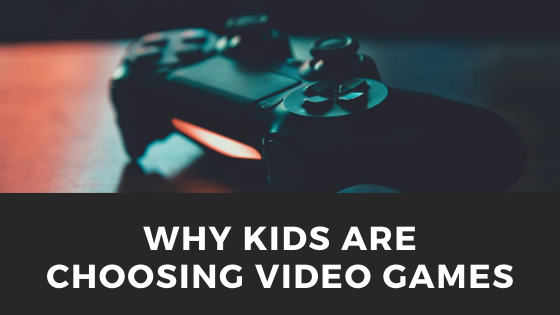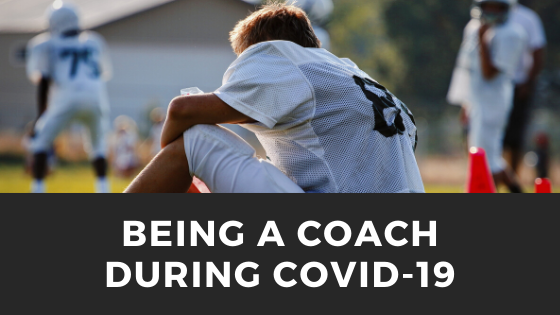About 70% of children drop out of organized sports before they reach high school. That is an unfortunate and staggering statistic.
Working in sport, I repeatedly hear from parents and coaches about the numerous benefits of kids playing sport. That playing on a team improves their ability to work with others. That young athletes learn the meaning of hard work, dedication, and commitment.
How is it if sports are so great that only about one fourth of youth athletes reach a competitive level? Why is it that 70% of children drop out of a potentially positive experience?
Adults Ruin the Athletic Experience
As many positive benefits sport offers, there are just as many negatives.
Adults have the responsibility of creating a healthy and positive environment for youth athletes. At the very minimum, parents should select coaches and programs that align with their values. Coaches should be able to discuss their personal philosophy for athletic and personal development of young athletes. Athletic programs should ensure that the proper personnel are hired and the training is appropriate.
Unfortunately, too many young athletes report seeing the adults, many in authority roles, act in detrimental and unethical ways.
A 2005 study by the University of Notre Dame found that:
- 36% of youth reported that coaches yelled at them during a game
- 26% of youth reported that coaches urged them to retaliate
- 48% of youth reported that coaches yelled at a referee
- 68% of youth reported seeing spectators yell at referees
- 43% of youth reported being teased by a fan
Kids Play Sport to Play
It’s called playing for a reason. Youth athletes participate in sport because it’s fun. The Institute for the Study of Youth Sport at Michigan State University asked youth athletes aged 10–12 why they played sports. The top five reasons were to:
- Have fun
- Do something I’m good at
- Improve my skills
- Stay in shape
- Get exercise.
These reasons all consist of personal joy children get from playing sports. When the focus of sport moves away from these points, youth athletes start to consider quitting.
Youth athletes quit sport when it becomes work rather than play.
Over Professionalization of Youth Sports
At any given moment, there are a million different sport options for a parent of a youth athlete.
There are local leagues, community teams, and the school athletic programs where you can enroll your athlete. But if you’re looking further out there are travel teams, regional teams, even state or national programs to consider. And if you want your athlete to gain an edge then you have to look at individualized training, sport specific training, weightlifting, and one-on-one coaching. You also have to make sure you have the best gear or else you’re leaving your athlete’s performance to chance.
Youth athletics has become a multi-million-dollar industry. It thrives on professionalizing youth sports. It perpetuates the idea that all of these potential options are necessary for your child to succeed in sport.
Any person going through that much training, competing, and pressure would struggle to maintain a top performance and enjoy it, much less a child. Placing youth athletes into every possible training opportunity can take away and even work against all of the intended benefits.
Before making the decisions for your youth athlete, talk with them about their goals for playing sport, what they love about it, and what benefits they want from sport. That way you can select all of the options that best match both of your goals.
Adults Have Not Infiltrated Video Games Yet
All of the reasons above that make youth athletics challenging for the child are not yet present when playing video games.
Many parents do not have the same understanding of playing video games as they do with playing sports. A parent watching their child playing football is more ready to provide unsolicited advice and yell corrections than watching their child playing Rocket League. When playing video games, it would be unusual to find coaches or parents yelling or urging the player to cheat.
The pressure to play and do well in video games does not exist on the same level as youth sport. There are no summer training programs. Five different local and travel youth teams to try out for do not exist. There isn’t the pressure to specialize early or have individual coaching.
Adults have not had the opportunity to ruin the experience of playing video games yet. However, I do believe it is on the horizon. E-sports are gaining popularity every year. With prize pools and prevalence of online tournaments increasing, it’s only a matter of time before the culture around video games looks similar to that of youth sports.
Kids Own Their Experience
If you look back to the top reasons children play sport, the top three occur within video games as well. Kids playing video games have fun, do something they are good at, and improve their skills. Obviously, the physical benefits are not the same with video games. But the potential mental and personal developments are equally as present.
Without the over involvement of parents, kids are able to own their experience with video games. Kids are allowed to fail without the ever-watchful eye of their parents. No adult is there to correct them and tell them they are doing it wrong. They get to make mistakes, fail, and try again. In many ways, video games offer the space to develop resilience and grit through trials of failure, adjustment, and improvement.
Playing video games also encourages creativity and problem solving. Inherently, video games are meant to be progressively challenging. Therefore, children must seek out and create solutions to evolving problems.
Kids will persist in activities they enjoy. Kids play to play and quit when it becomes work. You may be hard pressed to find a kid who thinks of playing video games as work.
Neither Sport nor Video Games Have All the Answers
Video games, like sports, are not without issues. The potential benefits of sport or video games are not guaranteed.
In both settings, there is still the possibility of cheating. Poor cultures and environments in both settings, can lead to poor behaviors and patterns. Coaches who encourage retaliation in sport develop negative life-long behaviors in youth athletes. Children who play video games with toxic players create poor coping mechanisms. Youth athletes who receive constant criticism develop poor self-esteem and confidence. Kids who play video games meant for older audiences may be exposed to content not intended for them.
Adults Have an Important Role
Adults are responsible for monitoring and creating healthy, productive environments for their children’s development. Parents must be involved with how their children spend their free time. Parents need to make sure that the video games their children play are age appropriate. In the same way that parents need to make sure that the team and athletic programming is age appropriate for their athlete.
As adults we have an important role in children’s lives. We must acknowledge our responsibilities and influences we have on their experiences. Then work to create spaces for children to develop and thrive. Consider why your child might be more interested in video games than sport. Reflect on any potential pressures you or coaches may place on sport participation compared to that of playing video games.
You can shape the athletic environment your child competes in. They do not have to have negative experiences associated with sport. Be intentional about the programs and coaches you select. Align your goals for your youth athlete not only with their coach but with the athlete themselves. Take the time to make sure you and your child are gaining the most from participation in sport.



